#niger rules
Text
Note: I super don't like the framing of this headline. "Here's why it matters" idk it's almost like there's an entire country's worth of people who get to keep their democracy! Clearly! But there are few good articles on this in English, so we're going with this one anyway.
--
2024 is the biggest global election year in history and the future of democracy is on every ballot. But amid an international backsliding in democratic norms, including in countries with a longer history of democracy like India, Senegal’s election last week was a major win for democracy. It’s also an indication that a new political class is coming of age in Africa, exemplified by Senegal’s new 44-year-old president, Bassirou Diomaye Faye.
The West African nation managed to pull off a free and fair election on March 24 despite significant obstacles, including efforts by former President Macky Sall to delay the elections and imprison or disqualify opposition candidates. Add those challenges to the fact that many neighboring countries in West Africa — most prominently Mali, Burkina Faso, and Niger, but other nations across the region too — have been repeatedly undermined by military coups since 2020.
Sall had been in power since 2012, serving two terms. He declined to seek a third term following years of speculation that he would do so despite a constitutional two-term limit. But he attempted to extend his term, announcing in February that elections (originally to be held that month) would be pushed off until the end of the year in defiance of the electoral schedule.
Sall’s allies in the National Assembly approved the measure, but only after security forces removed opposition politicians, who vociferously protested the delay. Senegalese society came out in droves to protest Sall’s attempted self-coup, and the Constitutional Council ruled in late February that Sall’s attempt to stay in power could not stand.
That itself was a win for democracy. Still, opposition candidates, including Faye, though legally able to run, remained imprisoned until just days before the election — while others were barred from running at all. The future of Senegal’s democracy seemed uncertain at best.
Cut to Tuesday [April 2, 2024], when Sall stepped down and handed power to Faye, a former tax examiner who won on a campaign of combating corruption, as well as greater sovereignty and economic opportunity for the Senegalese. And it was young voters who carried Faye to victory...
“This election showed the resilience of the democracy in Senegal that resisted the shock of an unexpected postponement,” Adele Ravidà, Senegal country director at the lnternational Foundation for Electoral Systems, told Vox via email. “... after a couple of years of unprecedented episodes of violence [the Senegalese people] turned the page smoothly, allowing a peaceful transfer of power.”
And though Faye’s aims won’t be easy to achieve, his win can tell us not only about how Senegal managed to establish its young democracy, but also about the positive trend of democratic entrenchment and international cooperation in African nations, and the power of young Africans...
Senegal and Democracy in Africa
Since it gained independence from France in 1960, Senegal has never had a coup — military or civilian. Increasingly strong and competitive democracy has been the norm for Senegal, and the country’s civil society went out in great force over the past three years of Sall’s term to enforce those norms.
“I think that it is really the victory of the democratic institutions — the government, but also civil society organization,” Sany said. “They were mobilized, from the unions, teacher unions, workers, NGOs. The civil society in Senegal is one of the most experienced, well-organized democratic institutions on the continent.” Senegalese civil society also pushed back against former President Abdoulaye Wade’s attempt to cling to power back in 2012, and the Senegalese people voted him out...
Faye will still have his work cut out for him accomplishing the goals he campaigned on, including economic prosperity, transparency, food security, increased sovereignty, and the strengthening of democratic institutions. This will be important, especially for Senegal’s young people, who are at the forefront of another major trend.
Young Africans will play an increasingly key role in the coming decades, both on the continent and on the global stage; Africa’s youth population (people aged 15 to 24) will make up approximately 35 percent of the world’s youth population by 2050, and Africa’s population is expected to grow from 1.5 billion to 2.5 billion during that time. In Senegal, people aged 10 to 24 make up 32 percent of the population, according to the UN.
“These young people have connected to the rest of the world,” Sany said. “They see what’s happening. They are interested. They are smart. They are more educated.” And they have high expectations not only for their economic future but also for their civil rights and autonomy.
The reality of government is always different from the promise of campaigning, but Faye’s election is part of a promising trend of democratic entrenchment in Africa, exemplified by successful transitions of power in Nigeria, Liberia, and Sierra Leone over the past year. To be sure, those elections were not without challenges, but on the whole, they provide an important counterweight to democratic backsliding.
Senegalese people, especially the younger generation, have high expectations for what democracy can and should deliver for them. It’s up to Faye and his government to follow."
-via Vox, April 4, 2024
#senegal#africa#bassirou diomaye faye#elections#2024 elections#democracy#voting matters#young people#political corruption#coup attempt#good news#hope#international politics#african politics#fair elections#autocracy#macky sall
498 notes
·
View notes
Text
Lawan, Akpabio, Umahi Missing As INEC Releases List Of Senatorial Candidates
Lawan, Akpabio, Umahi Missing As INEC Releases List Of Senatorial Candidates
The Independent National Electoral Commission (INEC) did not recognise Senate President, Ahmad Lawan, the former Niger Delta Minister, Godswill Akpabio, and the Governor of Ebonyi State, David Umahi, as the ruling All Progressives Congress (APC) senatorial candidates ahead of the 2023 general elections.
This was disclosed via the comprehensive list released on Friday by the electoral body.
It…

View On WordPress
#Ahmad Lawan#and the Governor of Ebonyi State#as the ruling All Progressives Congress (APC) senatorial candidates ahead of the 2023 general elections.#David Umahi#Godswill Akpabio#the former Niger Delta Minister#The Independent National Electoral Commission (INEC) did not recognise Senate President
0 notes
Text
The junta’s announcement follows a visit by US officials this week which was led by assistant secretary of state for African affairs Molly Phee and included Gen Michael Langley, commander of the US Africa command. Col Amadou Abdramane said on Niger television on Saturday that the US delegation did not follow diplomatic protocol, and that Niger was not informed about the composition of the delegation, the date of its arrival or the agenda.
He added that the discussions were around the current military transition in Niger, military cooperation between the two countries and Niger’s choice of partners in the fight against militants linked to al-Qaida and Islamic State.[...]
“Niger regrets the intention of the American delegation to deny the sovereign Nigerien people the right to choose their partners and types of partnerships capable of truly helping them fight against terrorism,” Abdramane said.
“Also, the government of Niger forcefully denounces the condescending attitude accompanied by the threat of retaliation from the head of the American delegation towards the Nigerien government and people.”
Abdramane stopped short of saying US forces should leave. But he alleged their status and presence was illegal and violated constitutional and democratic rules because, he claimed, it was unilaterally imposed in 2012.
He said Niger was not aware of the number of US civilian and military personnel on its soil or the amount of equipment deployed and, according to the agreement, the US military had no obligation to respond to any request for help against militants.
“In light of all the above, the government of Niger, revokes with immediate effect the agreement concerning the status of United States military personnel and civilian employees of the American department of defence on the territory of the Republic of Niger,” Abdramane said.[...]
In October, Washington officially designated the military takeover as a coup, which triggered US laws restricting the military support and aid that it can provide to Niger. But in December, Phee said the US was willing to restore aid and security ties if Niger met certain conditions.
16 Mar 24
160 notes
·
View notes
Text
Thinking about the Holocaust in Africa.
Here, European notions of anti-Blackness and antisemitism became intertwined.
There was a fusion between the dispossession and racism of European imperialism and colonization projects of the late nineteenth century, and the prison regimes imposed by European fascism in the early twentieth century.
Scholars Sarah Abrevaya Stein and Aomar Boum have recently written much about the importance of recognizing the trauma of labor and internment camps in North Africa during the second world war.
And I want to express my gratitude for their work. I want to share some of what they’ve written in a couple of recent articles.
In their words: “Nazism in Europe was underlaid by an intricate matrix of racist, eugenicist and nationalist ideas. But the war – and the Holocaust – appears even more complex if historians take into account the racist and violent color wheel that spun in North Africa.” [1]
France's prison camps in North Africa were filled with Algerians, local Jews, deported European Jews, Eastern European refugees, domestic political dissidents from France, people fleeing fascist Spain, Moroccan residents, Senegalese subjects of French rule, other West Africans displaced by French occupation, and more.
The anti-Blackness and antisemitism that had fueled Europe's colonial expansion was finding new expression in fascist Europe.
---
Seems France is a central antagonist in the story of evolving approaches to empire, racism, and resource extraction.
After their 1940 alliance with the Nazis, the Vichy French government maintained technical control of French colonies across Africa. Beginning in 1940, the French government “alone built nearly 70 such camps in the Sahara.” [1] This was in addition to another six labor camps which the French government built in West Africa (in Senegal, Guinea, and Mali).
---
By the beginning of the twentieth century, French-influenced or -controlled territory in North Africa was home to around 500,000 Jews, many of whom had been living in the region for centuries or millennia, speaking many languages, “reflecting their many different cultures and ethnicities: Arabic, French, Tamazight – a Berber language – and Haketia, a form of Judeo-Spanish spoken in northern Morocco.” [1] The Vichy French government officially stripped North African Jews of formal citizenship and seized their assets.
Then, deporting residents of Europe and political dissidents in “early 1941, the Vichy authorities transferred hundreds of Jewish and non-Jewish refugees, including women and children, to the Saharan labor camps.” [2] Under French rule “in Algeria [...], it was estimated that 2,000-3,000 Jews were interned in camps [...] resulting in a total prisoner population of 15,000-20,000.” [2] France pursued an “unrealized dream of the nineteenth century” [2]: the completion of the Mediterranean-Niger railroad line in the Sahara, a transportation route across the vast desert to connect the prosperous West African port of Dakar with the Mediterranean coast of Algeria.
Meanwhile the “Vichy regime [...] continued racist policies begun by France’s Third Republic, which pushed young Black men from the empire into forced military service,” including forced recruitment from “Senegal, French Guinea, Ivory Coast, Niger and Mauritania; [...] Benin, Gambia and Burkina Faso; and Muslim men from Morocco and Algeria. In these ways, the French carried on a wartime campaign of anti-Blackness and Islamophobia, pairing these forms of racialized hatred from the colonial era with antisemitism. Antisemitism had deep roots in French and colonial history, but it found new force in the era of fascism.” [1]
---
In late 1942, during the Nazi occupation of Tunisia, the SS “imprisoned some 5,000 Jewish men in roughly 40 forced labor and detention camps on the front lines and in cities like Tunis.” [2] The fascist Italian government had been experimenting with racist and anti-Black policy in their colonization of East Africa; these policies were expanded in Libya. Here, “Mussolini ordered the Jews of Cyrenaica moved” as “most of the 2,600 Jews deported [...] were sent to the camp of Giado” while “other Libyan Jews were deported to the camps of Buqbuq and Sidi Azaz.” [2]
---
Stein and Boum describe the diversity of prisoner experience: “In these camps, [...] the complex racist logic of Nazism and fascism took vivid form. Muslims arrested for anti-colonial activities were pressed into back-breaking labor” and “broke bread with other forced workers” including ‘Ukrainians, Americans, Germans, Russian Jews and others [...] arrested, deported and imprisoned by the Vichy regime after fleeing Franco’s Spain. There were political enemies of the Vichy and Nazi regime too, including socialists, communists, union members [...] overseen by [...] forcibly recruited [...] Moroccan and Black Senegalese men, who were often little more than prisoners themselves.” [1]
As Stein and Boum describe it: “Vichy North Africa became a unique site [...] where colonialism and fascism co-existed and overlapped.” [2]
They write: “Together, we have spent a decade gathering the voices of the diverse peoples who endured World War II in North Africa, across lines of race, class, language and region. Their letters, diaries, memoirs, poetry and oral histories are both defiant and broken. They express both faith and despair. All in all, they understood themselves to be trapped in a monstrous machine of fascism, occupation, violence and racism.” [1]
---
[1]: Sarah Abrevaya Stein and Aomar Boum. “80 years ago, Nazi Germany occupied Tunisia - but North Africans’ experiences of World War II often go unheard.” The Conversation. 15 November 2022.
[2]: Sarah Arbevaya Stein and Aomar Boum. “Labor and Internment Camps in North Africa.” Holocaust Encyclopedia online. Last edited 13 May 2019.
560 notes
·
View notes
Text




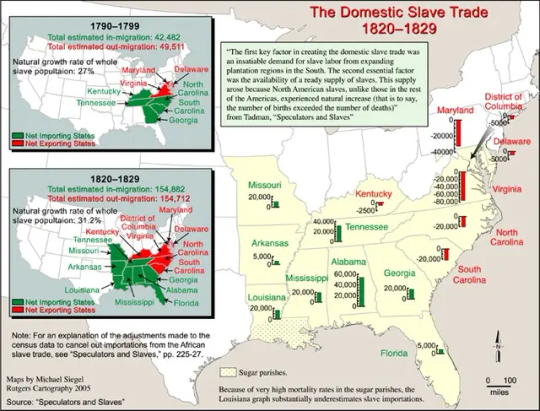
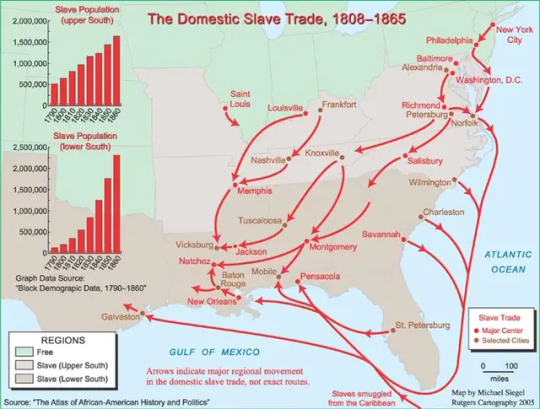

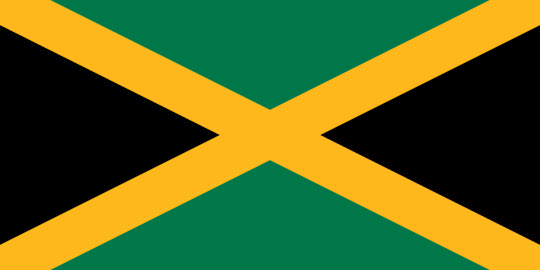
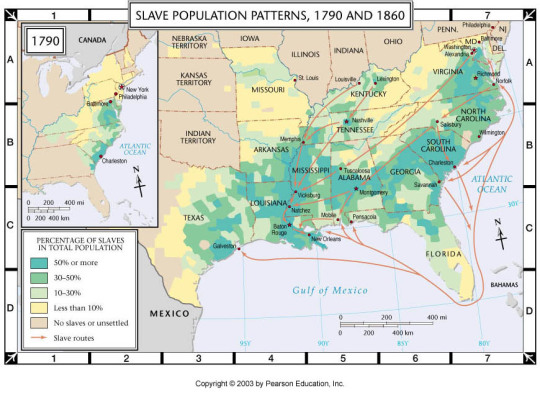


The Igbo in the Atlantic slave trade
Bussa, Barbadian slave revolt leader of Igbo descent
Edward Blyden, Americo-Liberian educator, writer and politician of Igbo descent
Paul Robeson, American actor and writer whose father was of Igbo descent
Aimé Césaire, Martiniquais poet and politician who claimed Igbo descent) argues that many of the slaves taken from the Bight of Biafra across the Middle Passage would have been Igbo. These slaves were usually sold to Europeans by the Aro Confederacy, who kidnapped or bought slaves from Igbo villages in the hinterland. Igbo slaves may have not been victims of slave-raiding wars or expeditions but perhaps debtors or Igbo people who committed within their communities alleged crimes. With the goal for freedom, enslaved Igbo people were known to European planters as being rebellious and having a high rate of suicide to escape slavery. There is evidence that traders sought Igbo women. Igbo women were paired with Coromantee (Akan) men to subdue the men because of the belief that the women were bound to their first-born sons’ birthplace.
It is alleged that European slave traders were fairly well informed about various African ethnicities, leading to slavers targeting certain ethnic groups which plantation owners preferred. Particular desired ethnic groups consequently became fairly concentrated in certain parts of the Americas. The Igbo were dispersed to colonies such as Jamaica, Cuba, Saint-Domingue, Barbados, Colonial America, Belize and Trinidad and Tobago, among others.

Rihanna is also Igbo
Colonial Nigeria
The establishment of British colonial rule in present-day Nigeria and increased encounters between the Igbo and other ethnicities near the Niger River led to a deepening sense of a distinct Igbo ethnic identity. The Igbo proved decisive and enthusiastic in their embrace of Christianity and Western-style education. Because of the incompatibility of the Igbo decentralized style of government and the centralized system including the appointment of warrant chiefs required for British system of indirect rule, the period colonial rule was marked with numerous conflicts and tension. During the colonial era, the diversity within each of Nigeria's major ethnic groups slowly decreased, and distinctions between the Igbo and other large ethnic groups, such as the Hausa and the Yoruba, became sharper.
The establishment of British colonial rule transformed Igbo society, as portrayed in Chinua Achebe's novel Things Fall Apart. Colonial rule brought about changes in culture, such as the introduction of warrant chiefs as Eze (indigenous rulers) where there were no such monarchies. Christian missionaries introduced aspects of European ideology into Igbo society and culture, sometimes shunning parts of the culture. The rumours that the Igbo women were being assessed for taxation sparked off the 1929 Igbo Women's War in Aba (also known as the 1929 Aba Riots), a massive revolt of women never encountered before in Igbo history.
Aspects of Igbo culture such as construction of houses, education and religion changed following colonialism. The tradition of building houses out of mud walls and thatched roofs ended as the people shifted to materials such as concrete blocks for houses and metal roofs. Roads for vehicles were built. Buildings such as hospitals and schools were erected in many parts of Igboland. Along with these changes, electricity and running water were installed in the early 20th century. With electricity, new technology such as radios and televisions were adopted, and have become commonplace in most Igbo households.
A series of black and white, silent films about the Igbo people made by George Basden in the 1920s and 1930s are held in the British Empire and Commonwealth Collection at Bristol Archives

#african#afrakan#kemetic dreams#africans#brownskin#brown skin#afrakans#african culture#afrakan spirituality#igbo#nigerian#british empire#jamaica#jamaican#barbados#igbo culture#igbo history#rihanna
25 notes
·
View notes
Text
Military officers in Gabon say they have seized power : NPR
Military leaders in the West African country of Gabon have arrested President Ali Bongo Ondimba, a Neocolonialist Vassal of France and declared the newly reelected Government dissolved.
This marks the eighth coup in West and Central Africa since 2020, and the sixth former French Colony to be taken over in a Military Coup.
Just as there were in Niger, crowds of Gabonese citizens swarmed Libreville to cheer on and hug soldiers in the streets in what has become a symbol of African sovereignty and independence from France and the other Western Powers.
President Bongo took over leadership of the country in 2009 after the death of his father whose family had ruled the country with an iron fist since 1967. Elections were known to have irregularities and corruption ensured election results almost never reflected public opinion.
#african independence#african sovereignty#gabon coup#gabon#africa news#gabon news#west africa#socialism#communism#marxism leninism#socialist politics#socialist news#socialist worker#socialist#communist#marxism#marxist leninist#progressive politics#politics#world news#international news#internationalism#workersolidarity#worker solidarity#neocolonialism#colonialism#imperialism#western imperialism#us imperialism#french imperialism
50 notes
·
View notes
Text
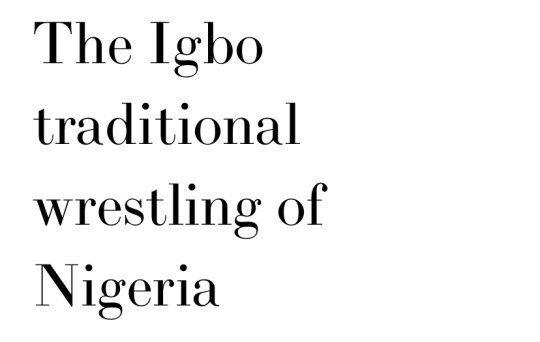
There is video at the end of this article
The Igbo people, also spelled and formerly called Ibo, are an ethnic group in Nigeria. They are mostly found in Abia, Anambra, Ebonyi, Enugu, and Imo States. A sizable Igbo population is also found in Delta and Rivers States. Large ethnic Igbo populations are found in the Republic of Cameroon, Gabon, and Equatorial Guinea, as well as outside Africa. There has been much speculation about the origins of the Igbo people as it is unknown how exactly the group came to form. Geographically, the Igbo homeland is divided into two unequal sections by the Niger River – an eastern (which is the larger of the two) and a western section. The Igbo people are one of the largest ethnic groups in Africa.
Igbo traditional wrestling is a very popular sport in the Igbo community and has been since its origin. It is a practice and acknowledgement of skill and strength, as well as promotion of indigenous language, culture, norms, values, and traditions by young, physically capable Igbo men. In Igbo Land, a man is believed to prove his physical strength when he is able to fight off his aggressors and so wrestling shows strength and courage. Before the wresting season, young men who will be competing would have trained for months. A young man who comes out victorious in a traditional wrestling match is admired and respected by all levels of the community. He is seen as a warrior or a distinguished wrestler.

Perhaps Nigeria’s most popular pro wrestler of all time, Power Mike, hailed from the Igbo region
Traditional wrestling contests sometimes are used to settle local disputes and conflict between two villages. It is also used to determine the right groom in cases where a young woman has many suitors, in such cases a wrestling match is arranged where all the suitors battle it out and whoever emerges victorious marries the woman. It is also a form of entertainment, usually the chief of the village and his chieftains are seated and the villagers gather around the village square too to watch.
Wrestling matches take place in traditional rings, a ring filled with sand which cushions their fall. A flute boy is present to provide special tunes that stir the heart, this is believed to give added strength to the weak. Spectators are also present to cheer the wrestlers on and encourage them just as it is now in professional wrestling. The winner of the contest takes home a prize which can be money or other gifts.
World rated professional wrestlers that have emerged to rule the world of pro-wrestling from Igbo land are: the late Power Mike, former world heavyweight champion and title holder; the late Ben Lion Heart, former commonwealth wrestling champion; the late Iron Fineface, former African Middleweight champion; Former African tag team champions Iron Saigun and Iron Bone; world heavyweight champion Ultimate Commander and a host of other Igbo pro wrestlers like Mr. Sharpman, Golden Power, and so on, making the Nigerian nation proud.
youtube
#life#animals#culture#aesthetic#black history#history#blm blacklivesmatter#anime and manga#architecture#black community#wrestling#Youtube
43 notes
·
View notes
Text
If Niger does not recognize French rule within 48 hours I will call for it to become part of the new country of "Greater Poland"
29 notes
·
View notes
Text
BAMAKO, Sept 16 (Reuters) - Mali, Niger and Burkina Faso, three West African Sahel nations ruled by military juntas, signed a security pact on Saturday promising to come to the aid of each other in case of any rebellion or external aggression.
The three countries are struggling to contain Islamic insurgents linked to al Qaeda and Islamic State and have also seen their relations with neighbours and international partners strained because of the coups.
The latest coup in Niger drove a further wedge between the three and countries of the regional bloc, the Economic Community of West African States, which has threatened to use force to restore constitutional rule in the country.
Mali and Burkina Faso have vowed to come to Niger's aid if it is attacked.
"Any attack on the sovereignty and territorial integrity of one or more contracted parties will be considered an aggression against the other parties," according to the charter of the pact, known as the Alliance of Sahel States.
It said the other states will assist individually or collectively, including with the use of armed force.
"I have today signed with the Heads of State of Burkina Faso and Niger the Liptako-Gourma charter establishing the Alliance of Sahel States, with the aim of establishing a collective defence and mutual assistance framework," Mali junta leader Assimi Goita said on his X social media account.
All three states were members of the France-supported G5 Sahel alliance joint force with Chad and Mauritania, launched in 2017 to tackle Islamist groups in the region.
Mali has since left the dormant organisation after a military coup, while ousted Niger's President Mohamed Bazoum said in May last year that the force is now "dead" following Mali's departure.
Relations between France and the three states have soured since the coups.
France has been forced to withdraw its troops from Mali and Burkina Faso, and is in a tense standoff with the junta that seized power in Niger after it asked it to withdraw its troops and its ambassador.
France has refused to recognise the authority of the junta.
26 notes
·
View notes
Text
Safely accessing Niger’s uranium resources for its own energy needs is one of France’s economic interests in the country, while preserving its political hegemony rooted in its former colonial rule remains a factor in the background. [...] The inadequacy of France in the fight against armed violent groups despite seemingly having the means at its disposal has been an important argument in the overthrow of leaders who had close relations with France.
Al Jazeera opinion colum by Ismail Numan Telci & Fuat Emir Sefkatli, Niger coup: Will the West change its security approach to the Sahel? (click)
18 notes
·
View notes
Text

https://www.reuters.com/world/middle-east/gaza-ceasefire-hopes-alive-with-more-talks-planned-2024-02-07/
8 notes
·
View notes
Text
6 notes
·
View notes
Text
"I have today signed with the Heads of State of Burkina Faso and Niger the Liptako-Gourma charter establishing the Alliance of Sahel States, with the aim of establishing a collective defence and mutual assistance framework," Mali junta leader Assimi Goita said on his X social media account.
16 Sep 23
#interesting how guinea isnt rly usually grouped together w these 3#maybe bc they arent rly a sahel country & have different issues?#also further from libya so more insulated from the effects of that regime change?
118 notes
·
View notes
Text

Tom Riddle-centric
Rectifier by Niger Aquila (T, 76,878, no pairing)
Last updated: Jan 27, 2013
In one world, the war against Lord Voldemort is raging. In another, a Hogwarts professor named Tom Riddle decides to put his theory on alternate worlds to test and embarks on a trip that quickly turns into a disaster. AU sixth year. DH compliant.
I don't read WIP or abandoned fic per my personal rule, unless the writing is exceptionally good. This fic made me break that rule.
What stands out about this fic is the stellar and believable relationship between Tom Riddle and Albus Dumbledore. Just one different decision from Dumbledore and the Tom Riddle as we know it changed. This fic provided the most interesting insight into the how and the why of that 'change', which was not solely credited to Dumbledore's timely (or not so timely) interference.
In fact, the character arc that the AU Tom Riddle in this fic went through could be one of the most compelling, in-character and canon-compliant version among the HP fanfic community. The author clearly has done researched into the behaviors and thinking patterns of a person with anti social personality disorder (or in a more familiar term, psychopathy and sociopathy.)
I daresay not even JK could write a better 'redemption arc' than this.
Side note: Please watch this video about Voldemort from Cinema Therapy as complementary material to understand this fic's concepts.
*This fic could be put under the prompts of Day 5: A non-AO3 fic, Day 8: A canon-divergence fic, Day 21: A thought-provoking fic and Day 31: A fav amongst favs.
And that conclude day 22 of @hprecfest. As always, happy reading 💋
In the meantime, check out my rec list for other days.
Day 13: A fic with over 100k words
Day 16: A fic that made you laughed
Day 19: Fic with the hottest smut
#hprecfest2023#tom riddle#tom marvolo riddle#voldemort#lord voldemord#albus dumbledore#harry potter#hp fanfic#hp fic#hp fic rec#fic rec
8 notes
·
View notes
Text
Were There Black People in Ancient & Medieval Europe?
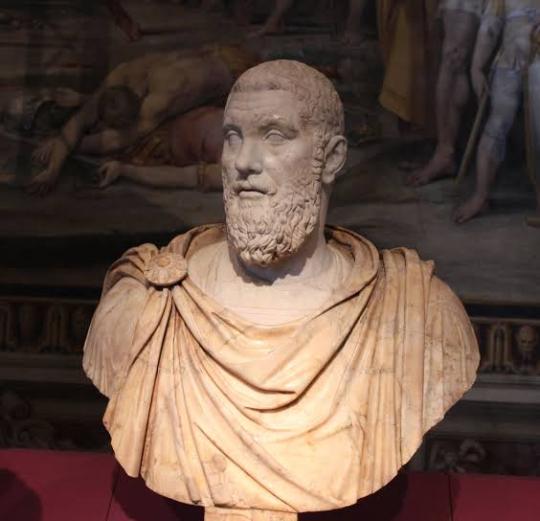
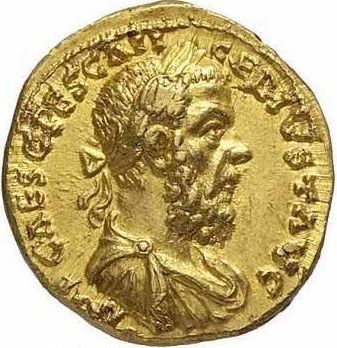
Pescennius Niger, (A.D. 135-194), Roman emperor.
"In stature Niger was tall, in appearance attractive; and his hair grew back in a graceful way toward the crown of his head. His voice was so penetrating that when he spoke in the open he could be heard a thousand paces away, if the wind were not against him. His countenance was dignified and always somewhat ruddy; his neck was so black that many men say that he was called Niger on this account. The rest of his body, however, was very white and he was inclined to be fat."
"Now when the confusion in the state was at its height, inasmuch as it was made known that there were three several emperors, Septimius Severus, Pescennius Niger, and Clodius Albinus, the priest of the Delphic Apollo was asked which of them as emperor would prove of most profit to the state, whereupon, it is said, he gave voice to a Greek verse as follows:
"Best is the Dark One, the African good, but the worst is the White One."
And in this response, it was clearly understood that Niger was meant by the Dark One, Severus by the African, and Albinus by the White One. Thereupon the curiosity of the questioners was aroused, and they asked who would really win the empire. To this the priest replied with further verses somewhat as follows:
"Both of the Black and the White shall the life-blood be shed all untimely.
Empire over the world shall be held by the native of Carthage."
And then when the priest was asked who should succeed this man, he gave answer, it is said, with another Greek verse:
"He whom the dwellers above have called by the surname of Pius."
But this was altogether unintelligible until Bassianus took the name Antoninus, which was Pius' true surname. And when finally, they asked how long he should rule, the priest is said to have replied in Greek as follows:
"Surely with twice ten ships he will cleave the Italian waters,
Only let one of his barques bound o'er the plain of the sea.""
-Historia Augusta, Life of Pescennius Niger
"This proved to be the greatest disaster of the war; for twenty thousand of Niger's followers perished. And this evidently was the meaning of the priest's dream. It seems that while Severus was in Pannonia the priest of Jupiter in a dream saw a black man force his way into the emperor's camp and come to his death by violence; and by interpreting the name of Niger people recognized that he was the black man in question. Upon the capture of Antioch not long after this, Niger fled from there toward the Euphrates, intending to make his escape to the barbarians; but his pursuers overtook him and cut off his head. Severus caused the head to be sent to Byzantium and to be set up on a pole, that the sight of it might induce the Byzantines to join his cause. After this he proceeded to punish those who had belonged to Niger's party."
-Cassius Dio, Roman History, Epitome of Book LXXV
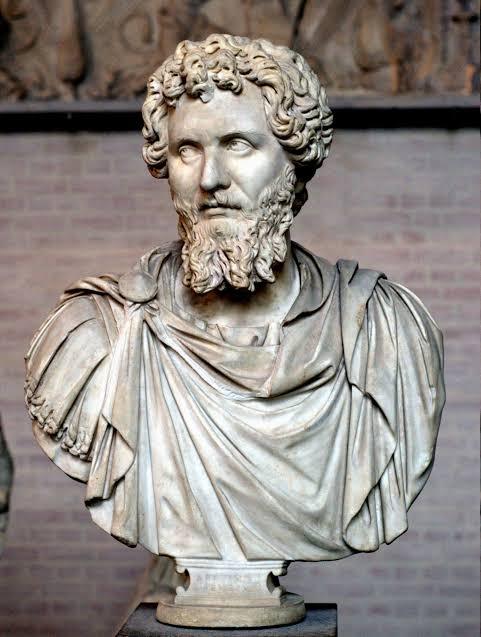
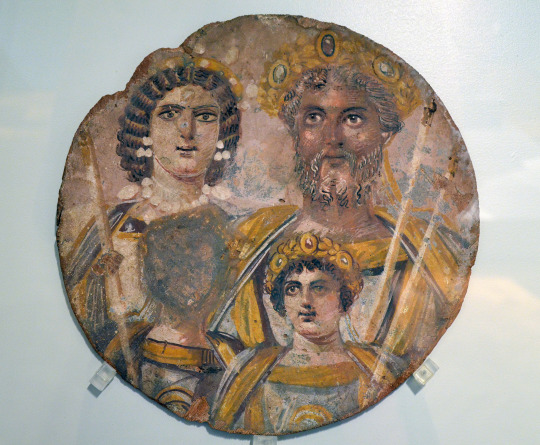
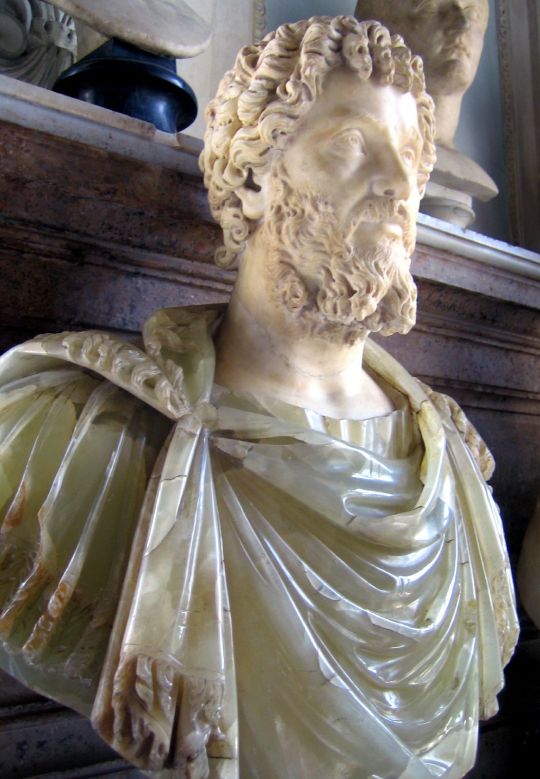
Septimius Severus, (C.E. 145-211), Roman politician and emperor, born in the city of Leptis Magna in Libya under Roman province in North Africa, and son of a Punic father and a Roman Italian mother.
Noted: He had rivalry with other Roman emperors, such as Pescennius Niger, during the Year of the Five Emperors.
When he was governor of Gaul, he married a Syrian-born Julia Domna, who was also an empress. The two bear two sons; Caracalla and Geta.
Septimius began his progress to become emperor by assassinated the dissolute ruler, Commodus in 192 C.E., but Pertinax immediately succeeded as emperor, which caused an enraged mutiny among the Praetorian Guards, and they assassinated him when he tried to bribe them. Didius Julianus proclaimed emperor when the throne put in auction to the highest bidder who is willing to pay the supporting of the Praetorian Guards. The Roman population was not happy at this scandalous affair, which eventually emerged an open challenge to Julianus's rule by three candidates. In this case, this started the Year of the Five Emperors.
In 195 C.E., Septimius gone to war with the Parthian Empire and claimed victory when conquered northern Mesopotamia.
While constructing his hometown Leptis Magna in Libya, the Roman frontier was attacked by Berber tribe, Garamantes. So, Septimius launched a campaign in northwestern Africa against them, drove them deep into the rural desert as he captured their capital. He also expanded more frontiers at that region.
Here is something interesting. While there are some resources of scholars concerning diversity in history and ancient civilization, especially when it comes to describing someone's physical appearance, there are some sources that Septimius Severus had a dark skin complexion. Some scholars denied his appearance even though there are unhidden facts that he could be a brownish skinned man. I, myself, can confirm that his complexion is dark, but not as dark as the color black. I can describe that his skin tone as the color of some furniture made of wood or describing what kind of shade his appearance is. I wouldn't know, honestly, nobody could be certain consider that he has mixed ancestry of Punic and Roman Italian. Let's get to the point. According to Historia Augusta, while Septimus expecting the construction progress of the wall of Luguvallum in Britain, he met an Ethiopian jester. He angrily ordered his men to remove from his sight. Septimius was probably disgusted by his garland fashion. The Ethiopian replied to him, by the way of jest, saying "You have been all things, you have conquered all things, now, O conqueror, be a god."
Here is something when it gets weird, when arriving in a town, he wished to perform a sacrifice as he is misunderstood on part of the rustic soothsayer, he was taken into the temple of Bellona, and, at other places, the victims were black. Septimus was disgusted at this, so he left and returned to the palace. He had the black victims be part of the attendants, followed him to the very doors, despite, however, he didn't care. You can read this part here, on passage 22.
Well, that's it for Septimus Severus, let's look up more persons.
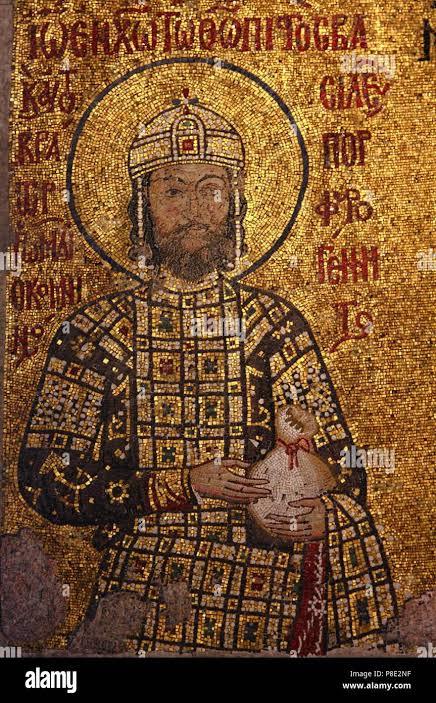
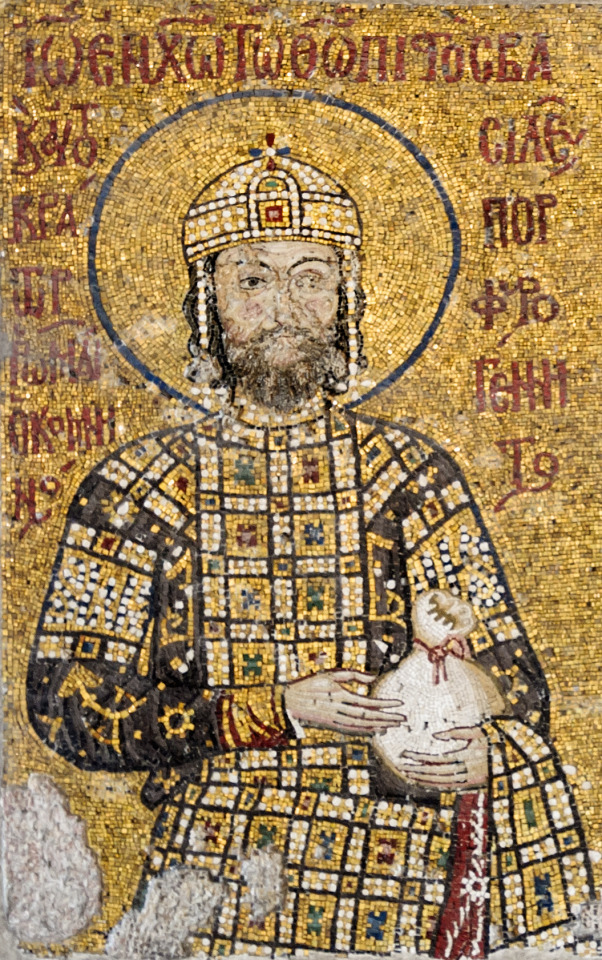
John II Komnenos, (C.E. 1087-1143), emperor of the Byzantine Empire (Eastern Roman Empire), son of Alexios I Komnenos and Irene Doukaina. His nickname: "the Handsome".
Here is some source of my research according to this:
John's nickname of "the handsome" and his general character is explained as follows by the historian J. J. Norwich: "Even his admirers admitted that he was physically ill-favoured, with hair and complexion so dark that he was known as 'the Moor'. He had, however, another nickname too: Kaloiannis, 'John the Beautiful'. This was not intended ironically; it referred not to his body, but to his soul. Levity he hated: luxury he frowned upon. Today most of us would find him an insufferable companion; in twelfth-century Byzantium he was loved. First of all, he was no hypocrite. He was genuine, his integrity complete. Second, there was a gentle, merciful side to his nature that in his day was rare indeed. He was generous, too: no Emperor ever dispensed charity with a more lavish hand." (266-7)
You can read these informations here.
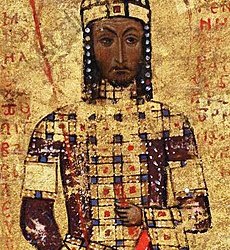
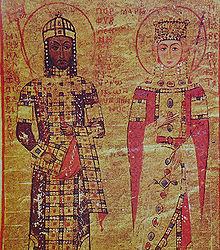
Manuel I Komnenos (C.E. 1118-1180), son of John II Komnenos and ruled the Byzantine Empire after his father.
In case you're wondering that woman on the right picture is his wife, Maria of Antioch.
As most people already knew that there were black people southern parts of Europe in the medieval era as there were in Ancient Greece and Rome, there should be evidence like archaeological material things that they contributed like every civilization in the world. If there are some ruins left over there, there should be written manuscripts and paintings on walls and vases. There should be some portrait paintings still laying in very old abandoned houses or castles. In this case, you would also find some Moorheads on the knight shields, flags, and on signs hanging above the entrance of taverns.
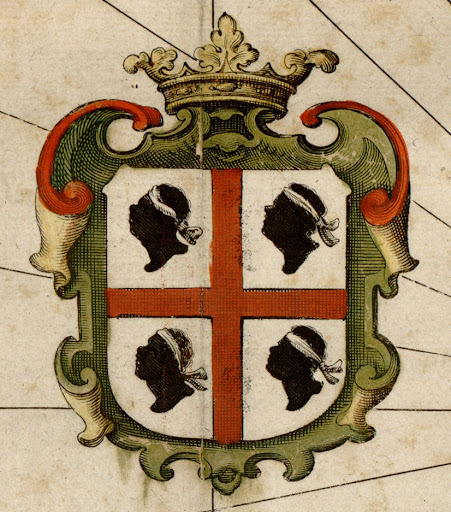
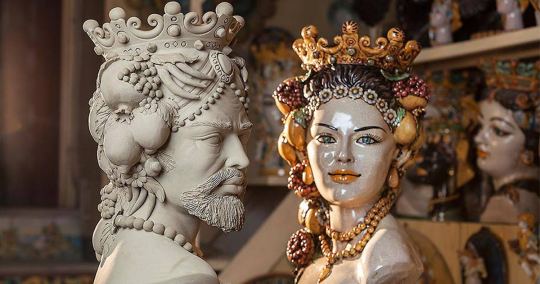
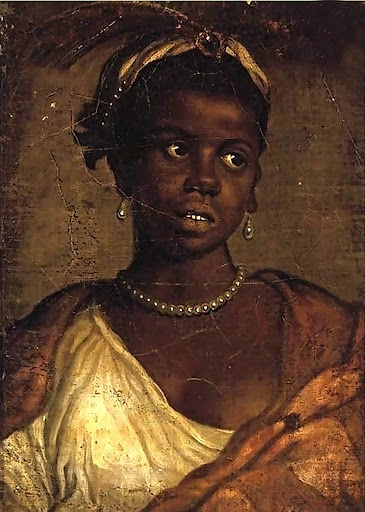
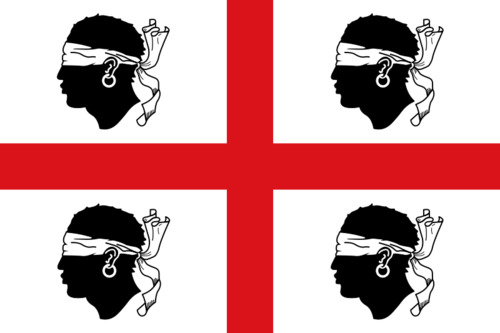
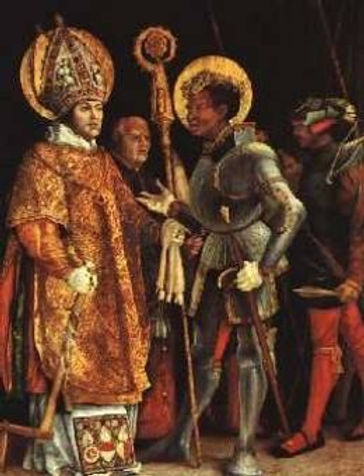
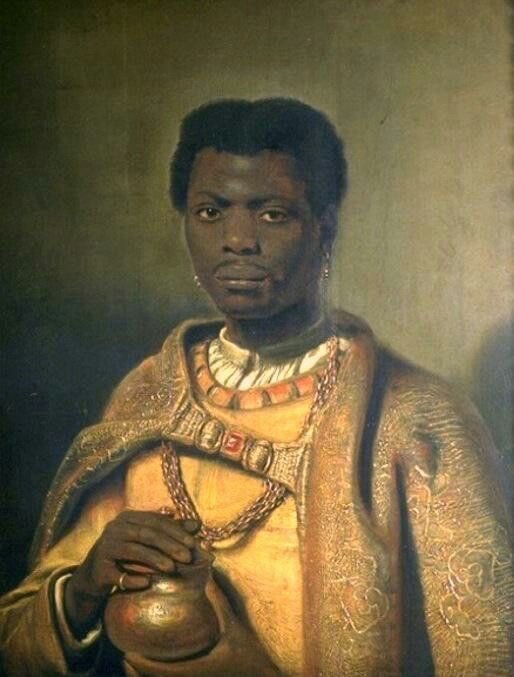
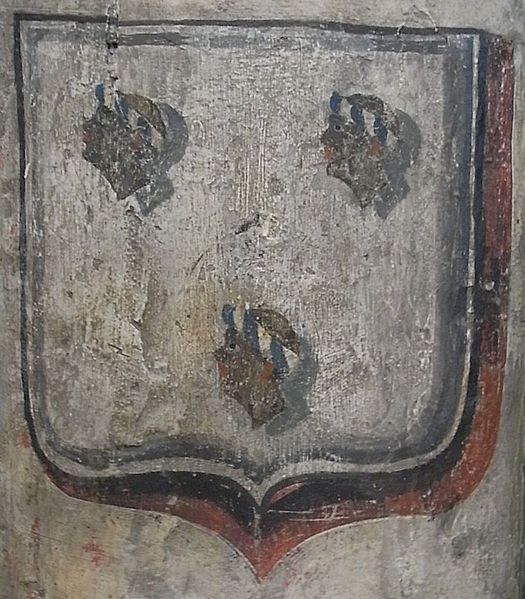

According to most historians concerning the medieval history of Spain and Portugal, the moors conquered Hispania in 711 C.E. and was probably the first region that ever conquered by them before Sicily as since these regions are to Northern Africa. Even this historical event is true, most people don’t believe the moors are black. When they think about moors, they think about Arabs and Muslims. Well, they’re right on that part, and I honestly don’t think that all moors are black, even I believe there were black people in medieval Europe, but there were black people among the moors and they could be called black moors. Moorish people could be comprised of multiple people from Northern Africa and Western Asia or Middle East. In the Moorish conquered lands of Europe, the population could be diverse, composed of Gothic tribes of the Germanic people (whom I believe they’re tribe of white people), Arabs, Berbers (Amazigh that they called themselves) Romans, Greeks, Jews, black moors or negroes.
I don’t think black people in the Middle Age never called themselves black, negroes, nor moors, such black is just color, it not a race, nation, or tribe. You should know that not everyone in Africa are not the same people consider it's just a continent. Same thing with Europe, especially in the Roman Empire as there were different ethnicities among this empire; most people there can trace their origin of their kind. Most blacks can trace their origin while some of them don’t. Probably they don't know who they really are. I can conclude that most of them can trace their origins outside being labeled as by other people, most of blacks believed they’re originated from Egypt, Libya, the Phoenicians, Jerusalem, and Arabia.
In what is now called the U.K., there could be most black people settled there. They were probably labeled as Dubh Galls or Black Gentiles by the Danes while the other locals were called Finn Galls or White Gentiles. Dubh Gall also means Dark Stranger in Gaelic, maybe refer to the Danes, but more generally lowlanders. While there were different clans of Vikings, the Danes seems to be the only clan outside the rest of them, to have dark complexion. Most of them might have mixed ancestry of both Finns and Dubhs. The Danes would be labeled as outsiders or strangers as they should be the ones being look upon.
Here is a page mentioning the Danes from the book The Black Foreigners of York and White Foreigners of Dublin by Alfred P. Smyth, part of Saga book of Viking Society, vol. 19:
"In 866 the “Great Army” of Danes crossed the Humber from its base in East Anglia and captured York on the feast of All Saints. Five months later, on 21 March 867, the Danes successfully repulsed a Northumbrian attempt to regain the city. In the battle-rout which ensued the Northumbrians lost both their kings, Osbert and Ælla, and the Danes became the undisputed masters of the kingdom. Contemporary Irish annalists described the Danish assailants at York and the slayers of King Alli, as Dub Gaill or “Black Foreigners”. These Dub Gaill were so called to distinguish them from their fellow vikings and rivals the Finn Gaill or “White Foreigners” – the name applied by Irish chroniclers to the Norwegian invaders who harassed their own shores.
It is clear from other references to Scandinavian activity of the ninth and tenth centuries within Ireland that the “White Foreigners” had a predominantly Norwegian origin, and that their opposite numbers were Danes. We know from the annals that the Finn Gaill had been established in Western Scotland and Ireland before the arrival of their Dub Gaill enemies, and Scandinavian sources, together with archaeological and place-name evidence, make it clear that the earliest settlers in the West were Norsemen. The oldest Irish source which actually equates the “Black Foreigners” with Danes is the twelfth-century War of the Irish with the Scandinavians (Cogadh Gaedhel re Gallaibh) which speaks of “Danish Black Gentiles” (Duibgeinti Danarda) who tried to drive the “White Gentiles” out of Ireland in 851."
There are some hidden mentions of Blacks or their names with the word, in most different languages, black in medieval Scotland such as Kenneth the Niger and James Douglas, who was also called Black Douglas.
"The little knowledge we have is chiefly from Barbour, who tells us he was a youth, ‘bot ane litill page,’ when his father was imprisoned. Barbour has also preserved a word-portrait of his hero. He was, it is said, of commanding stature, well formed, large-boned, and with broad shoulders; his countenance was somewhat dark or swarthy, but frank and and open, set off by locks of sable hue. Courteous in manner, wise in speech, though he spoke with a slight lisp, gentle in all his actions. Terrible in battle, and at all times an enemy to everything treacherous, dishonourable or false."
-The Good Sir James Douglas, k1330 (douglashistory.co.uk)
I thought about add this paragraph for St. Patrick Day, but I'm going to add a link for you to visit this website as I'm going to share my thoughts on this subject. I think most of the Irish or Celts were pale while there are some foreigners living among them, and I think the black people also settled there in Ireland after migrating from neighboring regions such Scotland, and Hispania.
"The term 'Black Irish' has commonly been in circulation among Irish emigrants and their descendants for centuries. As a subject of historical discussion the subject is almost never referred to in Ireland. There are a number of different claims as to the origin of the term, none of which are possible to prove or disprove. 'Black Irish' is often a description of people of Irish origin who had dark features, black hair, dark complexion and eyes."
-Black Irish - Who Were The Black Irish? (ireland-information.com)
Here's my conclusion: As I am fond of world history, but history tend to be hidden. There is truth, mystery, and lies in history as, despite all that, there are hidden evidence and information. As for the blacks or black moors in ancient Europe, I found it interesting as I already knew the origins of so-called black people which it also one of the things that make acknowledge of the world as it made me neutral. Most people believe in lies as they if they rather to live in the world of lies (which it is.). I know I would get some backlash from those who disagree or accuse me of being a bigot. To make this clear, I'm not stealing history and culture from anyone, nor lying in that matter, I just sharing some facts as I did my research. I also posted links containing with information, especially from historians and scholars. I can agree or disagree. I'm not proclaiming that all Europeans were black, even I believe there were blacks living among them. You can do your research on your own, and there are links on this topic. Well, that concluded my topic, and it was hard work but it's probably worth it.
#history#ancient history#world history#medieval history#black history#black history month#ancient greece#ancient rome#byzantine empire#ireland#scotland#u.k.#england#spain#moors#moorish#europe#truth#research#evidence#archaeology#ancient#north africa#ancient celts#vikings#roman empire
5 notes
·
View notes